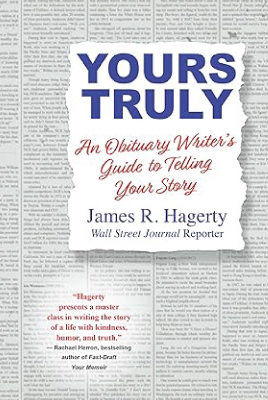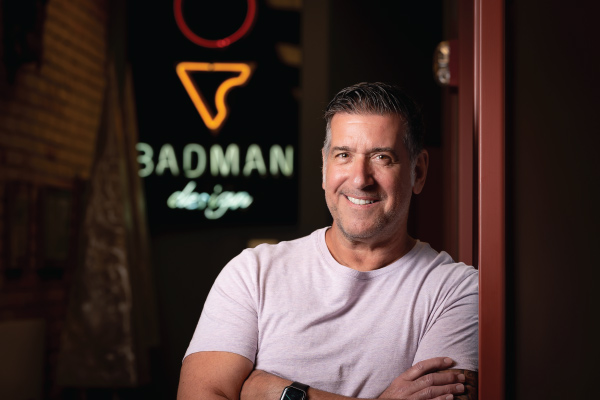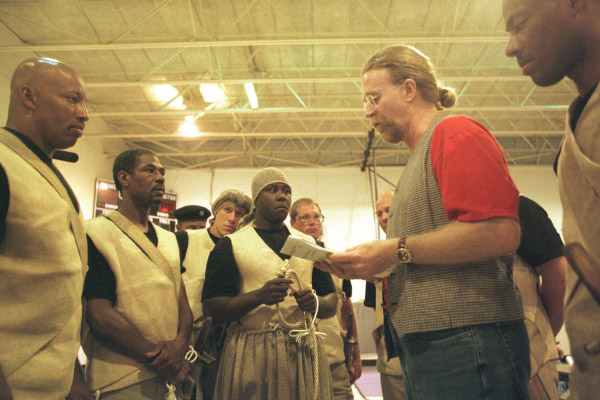Writing the Final Word
Bob Hagerty, ’78, teaches others how to preserve their life stories.
James R. (Bob) Hagerty, ’78, has spent decades chronicling the lives of others, but
it’s his work in obituary writing that has become his calling. A veteran journalist
with a long career at the Wall Street Journal and now a freelance contributor to the
WSJ, the New York Times and other publications, Hagerty has carved out a niche telling
the stories of lives well lived — and sometimes overlooked — with clarity, depth,
and heart.
When he began specializing in obituary writing about a decade ago, it struck him how
little adult children often knew about their parents’ lives. “A lot of good stories
just kind of get lost,” he said. “Although children and friends have been told about
these things, they only sort of remember it. And a story that you only half remember
is usually not very good.”
That realization led Hagerty to advocate for a simple yet powerful idea: write your
own story. His book, “Yours Truly: An Obituary Writer’s Guide to Telling Your Story,”
encourages people to take control of their narrative — not just for posterity’s sake,
but as a way to reflect on one’s life journey. “If you can’t think of anything positive
that might be said about you in your obituary, it’s not too late to try to improve
the narrative.”

Your obituary isn’t a nomination for sainthood.James “Bob” Hagerty
Hagerty offers practical advice for those intimidated by the task. Start with the
basics — dates, places, names — and then go deeper. “Ask yourself: What was I trying
to do with my life, and why? How did that turn out?” He emphasizes honesty over perfection.
“Your obituary isn’t a nomination for sainthood,” he joked. “It should include the
good and the bad and do it in a way that doesn’t put blame on others.”
His own story began in Grand Forks, where both of his parents were journalists at
the Grand Forks Herald. Hagerty knew from his time working on his high school paper
that would be his path too, but rather than studying journalism at UND, he earned
a degree in economics. He did, however, immerse himself in journalism by working on
the student newspaper staff. Eventually becoming editor of the Dakota Student, he
honed his craft and developed the work ethic that would carry him through a global
career. “It’s unbelievable how much freedom we had to do what we wanted,” he said.
“It was a great opportunity.”
From UND, Hagerty’s journey took him to the Wall Street Journal, where an internship
led to a full-time job, and eventually to international assignments in Hong Kong and
Europe.
Hagerty continues to write obituaries and champion the idea that everyone has a story
worth telling. “You really ought to write something down,” he said. “Because your
family is probably going to make a mess of it, despite their good intentions.”

Tips for Writing Your Own Life Story
Advice from obituary writer and UND alum James Hagerty
Start Early
Don’t wait until your health deteriorates. Memories fade, and the best stories are often clearest when told sooner rather than later.
Think Beyond the Résumé
Your story isn’t just a list of jobs and dates. Ask yourself: “What was I trying to do with my life, and why? How did that turn out?”
Be Honest, Not Perfect
You’re not writing a nomination for sainthood. Include both successes and setbacks told with humility and without blame.
Provide Context
Future generations may not recognize names or places. Add details that make your story understandable and meaningful to others.
Record and Transcribe
If writing feels daunting, start by recording yourself or having someone interview you. Then transcribe and edit the conversation into a readable format.
Organize and Preserve
Whether it’s a simple document or a printed book, make sure your story is saved in a format that’s easy to share with family and friends.


